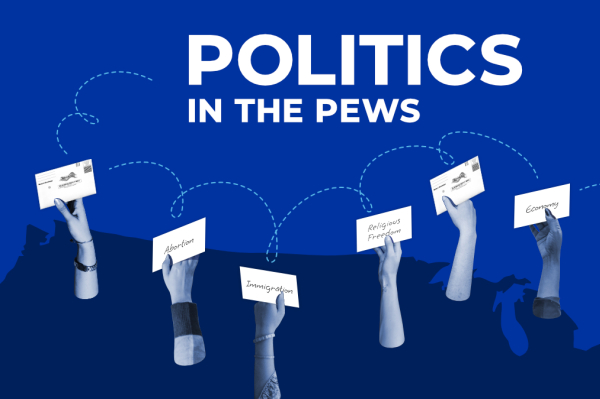How Many Americans Believe in Ghosts, Spells and Superstition?
A third of Americans say they believe in ghosts, a pre-Halloween poll found.
The same proportion, 34 percent, say they believe in unidentified flying objects, according to the poll by the Associated Press and Ipsos, and 23 percent say they have actually seen a ghost or believe they have been in one's presence.
Those most likely to have experienced that are single people, Catholics and those who never attend religious services. Three in 10 have awakened sensing a strange presence in the room.
Nearly half (48 percent) believe in extrasensory perception, a drop from the 66 percent who said they accept ESP in a similar question asked by Newsweek in 1996. Those with a higher education were found to be more likely to accept ESP – 51 percent of college graduates compared to 37 percent with a high school diploma or less.
Nineteen percent believe that spells or witchcraft exists. Urban dwellers, minorities and lower-earning people are more likely to believe in spells and witchcraft.
A 2006 Barna Group poll found that the supernatural world is more readily believed by teens. In the midst of the Harry Potter phenomenon, the Barna report revealed that 73 percent of America's youth have engaged in at least one type of psychic or witchcraft-related activity beyond media exposure or horoscope usage. Moreover, 30 percent of all teens claimed they had supernatural encounters. Non-evangelical teens were nearly three times more likely (69 percent) than evangelical teens (26 percent) to have engaged in witchcraft or psychic activities.
More than 10 percent of youth claimed they communicated with the dead.
As Americans bring out ghosts and the Grim Reaper and homes stock up on candy for Halloween on Oct. 31, a ministry leader is urging Christians to take up the opportunity to talk to their peers about topics of death and whether we should be afraid of dying.
"Ask your friends if they think people have a soul? Do they believe in an afterlife? Use the opportunity to share about God's free gift of eternal life through Jesus gift of salvation," suggests Jane Dratz of Dare 2 Share Ministries.
Other findings by the latest AP-Ipsos poll include the one in five people who say they are at least somewhat superstitious and the most likely admitted superstition – finding a four-leaf clover, according to 17 percent of the people. Also, 13 percent dread walking under a ladder or the groom seeing his bride before their wedding, while slightly smaller numbers named black cats, breaking mirrors, opening umbrellas indoors, Friday the 13th or the number 13.
The poll was conducted Oct. 16-18 on 1,013 adults.





















